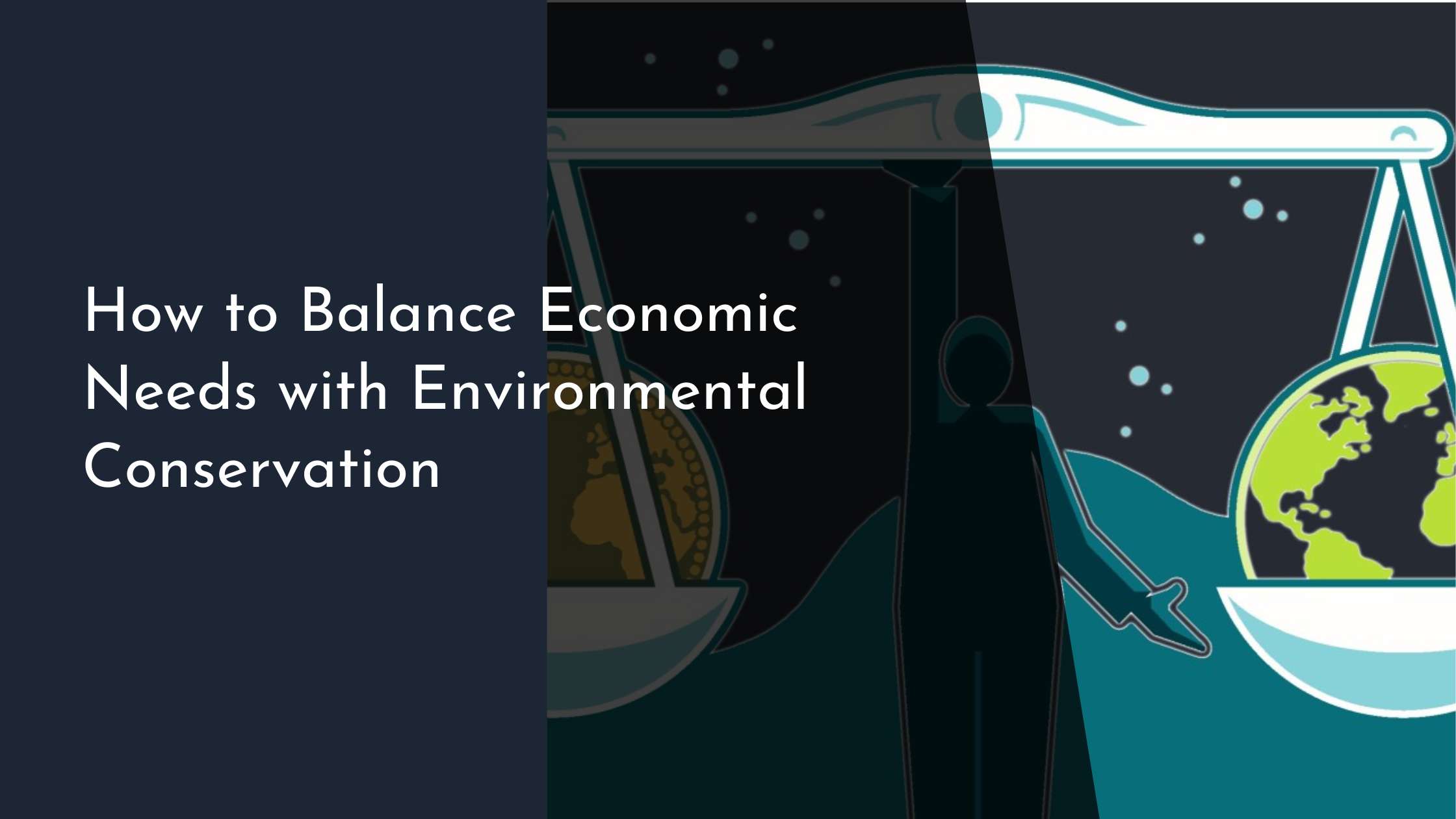How to Balance Economic Needs with Environmental Conservation
In today’s rapidly evolving world, the need to balance economic growth with environmental conservation has become a pressing concern for nations worldwide. As countries strive to uplift their economies, the challenge lies in pursuing development paths that do not compromise the planet’s ecological health. This article delves into understanding economic and environmental priorities, explores strategies for sustainable development, examines successful case studies, and highlights innovative policies that support a greener economy.
Understanding Economic and Environmental Priorities
Balancing economic needs with environmental conservation requires an understanding of the intrinsic priorities associated with each domain. Economically, nations aim for growth that fuels job creation, enhances living standards, and reduces poverty. These objectives often necessitate industrialization, infrastructure development, and increased energy consumption, which can strain natural resources and lead to pollution. Conversely, environmental priorities focus on preserving biodiversity, reducing carbon footprints, and ensuring the sustainability of ecosystems for future generations. The challenge is to harmonize these priorities without compromising either.
The path to achieving this balance involves recognizing the interconnectedness of economic and environmental goals. A thriving economy relies on healthy ecosystems that provide resources and services essential for industries and communities. Equally, environmental conservation can be bolstered by robust economic frameworks that allocate resources efficiently and invest in green technologies. By viewing economic and environmental priorities as complementary rather than conflicting, policymakers can devise strategies that promote sustainable development, ensuring long-term benefits for both domains.
Strategies for Achieving Sustainable Development
One effective strategy for achieving sustainable development is the adoption of circular economy principles. This approach emphasizes the importance of minimizing waste, reusing resources, and creating closed-loop systems in production and consumption processes. By promoting recycling and sustainable resource management, circular economies help reduce environmental impact while fostering economic growth through innovation and efficiency. Businesses and governments worldwide are increasingly embracing these principles as they recognize the dual benefits of cost savings and ecological preservation.
Another strategy involves investing in renewable energy sources to reduce dependence on fossil fuels. Transitioning to solar, wind, hydroelectric, and other renewable energies not only curtails greenhouse gas emissions but also stimulates economic growth through the creation of green jobs and new industries. As technology advances, the cost of renewable energy continues to fall, making it an economically viable and environmentally friendly option. By prioritizing renewable energy investments, countries can simultaneously address environmental concerns and strengthen their economic resilience.
Case Studies: Successful Balancing Examples
Costa Rica stands as a shining example of successfully balancing economic development with environmental conservation. The country has achieved significant economic growth while maintaining its commitment to environmental sustainability. Through policies that prioritize eco-tourism, the protection of natural reserves, and investments in renewable energy, Costa Rica has managed to position itself as a leader in environmental stewardship. This approach has not only preserved its rich biodiversity but also boosted its economy by attracting environmentally conscious tourists and investors.
Another notable example is Germany’s Energiewende, or “energy transition,” which showcases the potential for large-scale transformation towards a greener economy. By investing heavily in renewable energy infrastructure and phasing out nuclear power, Germany has reduced its carbon emissions and increased its energy security. The Energiewende strategy has fostered innovation, created jobs in the renewable sector, and positioned Germany as a leader in sustainable energy solutions. These case studies illustrate that with the right policies and commitment, economic growth and environmental conservation can go hand in hand.
Innovative Policies for a Greener Economy
Innovative policy frameworks are vital for driving the transition to a greener economy. One such policy is the implementation of carbon pricing mechanisms, such as carbon taxes or cap-and-trade systems. By assigning a monetary value to carbon emissions, these policies incentivize businesses to reduce their carbon footprint and invest in cleaner technologies. The revenue generated from carbon pricing can be reinvested in sustainable development projects, creating a virtuous cycle of environmental and economic benefits.
Another promising policy approach is the promotion of green finance initiatives, aimed at channeling investments into sustainable projects. Green bonds, for example, enable governments and corporations to raise capital specifically for environmental projects such as renewable energy, sustainable agriculture, and pollution control. By providing financial incentives for eco-friendly investments, green finance accelerates the shift towards sustainable economic practices, fostering innovation and growth in the green economy sector.
Balancing economic needs with environmental conservation is not only a necessity for a sustainable future but also an opportunity for innovation and growth. By understanding the interconnectedness of economic and environmental priorities, adopting strategies that promote sustainable development, learning from successful case studies, and implementing innovative policies, we can chart a path towards a greener economy. With collaborative efforts and forward-thinking approaches, it is possible to achieve a harmonious balance that ensures prosperity for both people and the planet.

